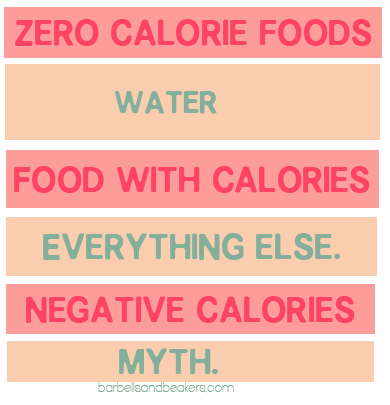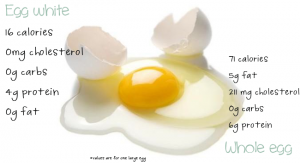Diets low in carbohydrates, or “low carb diets”, have been making their way back into the mainstream due to special recognition of Keto, Atkins and Paleolithic diet lifestyles. Like all “diets” (by “diet” I do not mean “what I eat every day,” but rather “what I’m doing to lose weight now”) they are not recommended for life. Why? Science 🙂
What is a carbohydrate?
A carbohydrate is a molecule that gives the body energy. Carbohydrates have many different functions, but for the argument of this article: carbohydrates derived from food give our body the energy it needs to function (see: Krebs Cycle). They are broken down into glucose, ketones, etc. for use by the entire body. The brain and neurons can only use glucose and ketones (that can pass the blood brain barrier) from carbohydrates for energy.
How does this apply to my diet?
When a carbohydrate is broken down it is used for energy. The most common form of this is glucose in humans. If your body needs energy, it’s more likely to use the carbohydrates/glucose circulating in your blood first for energy. Secondarily, it moves to your liver to extract stored glucose. Muscles can also access stored glucose in muscle cells. Next it removes stored glucose from fat cells. Lastly, it will enter a state of gluconeogenesis, where it creates glucose from non-carbohydrate sources. This is why carbs give great short term energy. If they’re available and the body needs energy they’ll use them preferentially. Excess carbohydrates that are not used stimulate insulin, which takes that glucose and puts it places in your body, such as your liver and fat cells.
So why are carbs important if we can just get energy from fat or our livers?
Your brain can only use glucose for energy. If your body doesn’t have glucose regularly circulating it has to get it from somewhere. First, it will dip into whatever is stored. Glycogen is the stored form of glucose. Remember how I said extra glucose gets stored? It’s stored as glycogen. If your body needs energy and there’s none there, it opens the cabinets and grabs some glycogen. The first place it gets this from is the liver. Some glycogen is also stored in your muscles so your muscles can have immediate access to it if needed – but ONLY to your muscles.
What happens when you run out of glycogen?
Ever heard of runners “hitting a wall” around mile 20? They’ve used up all of their glycogen. Symptoms include fatigue to the point of almost being unable to move. They have to counteract this by consuming different types of carbohydrates before and during their races.
So now we’re out of glycogen and glucose…what happens?
Your body has to make glucose from somewhere, so it makes it from non-carbohydrate carbon substrates. This creates ketone bodies that must be used for energy instead. Ketone bodies are made from fat during lipolysis, or “fat cutting.” However, the brain cannot use this for energy because ketone bodies cannot cross the blood-brain barrier to feed the brain. Very few ketone bodies do pass and can be used, but not at nearly the high volume of glucose.
What does this has to do with low carb diets?
The idea is that low carb diets decrease your levels of insulin. Since insulin drives glucose into storage cells, you store less fat. Since you have less carbohydrates, when your body needs energy it goes to glycogen in your liver and muscle. When that’s exhausted it has to start looking for other sources of energy. This leads to ketosis, where the body has a high level of ketone bodies. Theoretically, then, if you don’t have carbohydrates (or are low carb) and need energy your body instead burns fat. This is highly debated amongst scientists, as long term studies have shown that after a year on Atkins the average weight loss is 4%.
Is ketosis bad?
This is the big debate. What about cultures that don’t consume a lot of starches, or cultures that are much more active than ours? They spend more time in ketosis than we do. The argument can come from a standpoint of “what is normal?” Some studies have shown that periodic ketosis is normal and may actually have surprising benefits. Others have shown that ketosis predisposes you to heart disease (in this case, high protein diets), liver damage, and other health problems.
What about ketoacidosis? Isn’t that what diabetics get?
Yes. If you have a high level of ketone bodies and your body cannot get rid of them, the blood becomes acidic. This can be fatal. Healthy people with a working pancreas should not have to worry about this – your pancreas secretes enough insulin to prevent this high of a build up. Another concern arises from alcoholics, who dehydrate themselves so much they block the first steps of gluconeogenesis, and then get ketoacidosis. This is not a concern amongst normal, healthy individuals.
So is low-carb good or bad? Effective or not effective?
Calories are king, so avoiding carbohydrates without counting calories will do nothing for your weight loss and may make you feel weak or easily irritated. As for its effectiveness? Here are some studies…
The Effects of Low-Fat and High-Carb diet on the physiological and biochemical indices in healthy youth with different BMIs (no big difference between the two)
Comparison of the Atkins, Zone, Ornish and LEARN diets for change in weight and related risk factors among overweigh premenopausal women (Atkins group lost 4.7 kg in 12 months, Zone lost 1.6 kg, LEARN 2.6 kg and Ornish 2.2 kg)
BUT
Comparison of the Atkins, Ornish, Weight Watchers and Zone diets for weight loss and heart disease reduction (Each popular diet modestly reduced body weight and several cardiac risk factors. OVERALL DIETARY ADHERENCE RATES WERE LOW. Atkins lost 4.8 kg (21 of 40 participants completed) Zone lost 3.2 kg (26 of 40 completed) 3 kg for Weight watchers (26 out of 40 completed) and 3.3 kg for Ornish (20 of 40 completed) )
On the same vein…
Dietary adherence has been implicated as an important factor in the success of dieting strategies
and
Initial 6-month reduction in weight is the main predictor of both long-term retention and success in weight loss. Special attention is needed for women, current smokers and during holidays. Physical activity is associated with subsequent reduction in energy intake.

